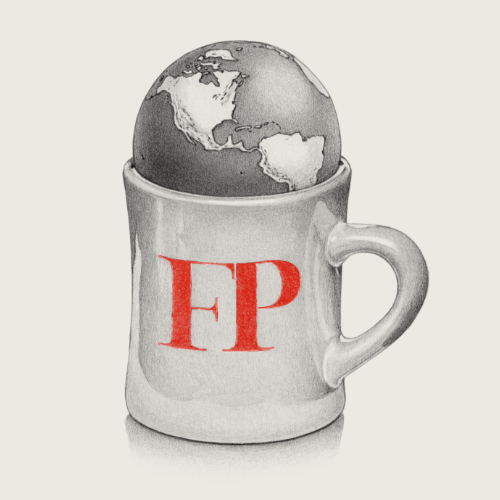
作者/Author(s): Matthew Kroenig
網站來源/Source: Foreign Policy
日期/Date: 09/15/2025
關鍵字/Keywords: 軍事、專制、美中
摘要:
2022 年 2 月俄烏戰爭爆發之初,許多頂尖軍事專家認為俄羅斯會輕鬆擊敗烏克蘭,他們也認為以色列與美國一旦打擊伊朗核設施,伊朗會發起區域戰爭。然而,這些事情都沒有發生。那麼若美中因台灣問題爆發衝突,中國的命運又將如何?
- 俄羅斯與伊朗的案例顯示,美軍分析人員常常會忽視專制政權的體制性弱點,這導致他們錯估敵軍力量,甚至設計出無效的戰略。
- 政治與意識型態一致會限制獨裁者的軍事決策,進而削弱該國的戰場效能:
- 獨裁者往往只聽順從官員呈報上來的「好消息」。
- 基層軍官缺乏自主權與應變能力,難以靈活應對變幻莫測的戰況。
- 其同盟關係脆弱且往往存在某種程度的不信任。
- 他們對國內政治的恐懼遠勝於外部敵人。因此,他們大多會優先鎮壓國內問題,之後再解決國際衝突。
- 西方分析人士經常高估專制政權的軍力規模、縝密計劃與膽識,卻忽略了該政體本身也有政治弱點。俄烏戰爭正是最佳例證。
- 美軍預測俄羅斯會快速取得勝利,甚至曾建議協助澤倫斯基撤離。
- 普丁決定入侵烏克蘭,是因為聽信官員過度樂觀的評估。
- 基層軍官缺乏主動性,普丁不得不派遣高階將領親自上前線指揮作戰。
- 僵化的指揮系統,加上根深蒂固的貪腐體制,最終成為俄軍的致命傷,使俄羅斯深陷長達三年半且至今未歇的戰爭泥淖。
- 同樣地,多數西方專家原本擔心美國與以色列攻擊伊朗設施後會引發更大規模的區域戰爭,導致大量傷亡與動盪。然而,伊朗害怕政權崩潰,且未能從其他專制盟友獲得足夠支持,最終選擇退讓。
- 將此觀察應用於中國入侵台灣的情境時,許多西方觀察家預測美國將敗給中國,或勉強慘勝。雖然這種結果確實可能發生,但西方這些評估同樣忽略了中國的專制弱點:
- 習近平企圖全面掌控中國經濟,反而抑制了經濟成長。
- 中國強勢的外交政策引發多國採取制衡措施。
- 貪腐與意識形態嚴重影響了解放軍的裝備採購與訓練。
- 中國核武戰略優先發展易受敵方先發制人打擊的陸基發射井,而非更具機動性的潛射彈道飛彈,顯示軍方高層對核武管理層缺乏信任。
- 俄羅斯與伊朗的案例凸顯了高估外部威脅的風險,甚至會阻礙自身有效的軍事與外交政策。美國確實應持續警惕中國軍事實力,但更應深入探討其潛在弱點。
Summary:
Top military experts anticipated that Russia would have an easy win over Ukraine in February 2022 and that Iran would initiate a regional war after Israel and the US struck its nuclear facilities. However, these events did not happen. Therefore, what will be China's fate in light of a possible clash with the US over Taiwan?
- The Russian and Iranian cases suggest that US military analysts often overlooked systematic weaknesses of autocracies. Ignorance of autocratic vulnerabilities will lead to an inaccurate assessment of enemy forces and, consequently, an ineffective strategy for confronting them.
- Political and ideological alignment often limits dictators' military decision-making, and consequently, their battlefield effectiveness:
- They tend to only listen to agreeable information presented by obedient officers.
- Lower officers lack the autonomy and capabilities to be flexible in a changing battlefield.
- Their alliances are fragile and often contain a certain degree of mistrust.
- They are more afraid of domestic politics than foreign enemies. Therefore, they will focus on domestic repression rather than resolving international conflict.
- Western analysts often overestimate the number, rigorous planning, and audacity of authoritarian regimes while overlooking their political weaknesses, as in the ongoing Russo-Ukraine War.
- The US military predicted a quick victory for Russia and suggested helping Zelensky escape Ukraine.
- Putin also dared to invade Ukraine after his officials gave an optimistic assessment of the Russian forces' operations in Ukraine.
- Putin has to send flag officers to direct military movements on the battlefield because on-field officers are reluctant to take the initiative.
- The rigid command-and-control system, along with endemic kleptocracy and corruption, proved fatal for the Russian military and trapped Russia in a three-and-a-half-year war that is still ongoing.
- Most Western experts also feared a larger regional war after Israel and the US attacked Iranian facilities, which would lead to significant casualties and regional instability. However, Iran chose to back down due to fear of a regime collapse and the failure to find support from its autocratic allies.
- Applying the observations to the case of a Chinese invasion of Taiwan, many Western observers predicted that the US would lose to China or would achieve a pyrrhic victory. Although possible, these assessments also failed to address China's autocratic weaknesses.
- Xi's desire to have complete control over the Chinese economy had stunted its economic growth.
- China's aggressive foreign policy resulted in counterbalancing from many countries.
- Corruption and ideological assertion had plagued the PLA's procurement and training.
- China's nuclear posture of prioritizing land-based silos, which are highly vulnerable to an adversary's first strike, over the more mobile SLBMs indicated military leaders' mistrust of its officials with atomic weapons.
- The Russian and Iranian cases highlighted the risks of overestimating foreign threats, thereby impeding effective military and foreign policy interventions. Although the US should remain wary of China's military strengths, it should explore its potential weaknesses.
